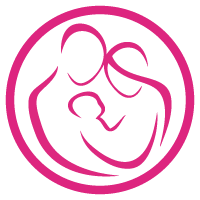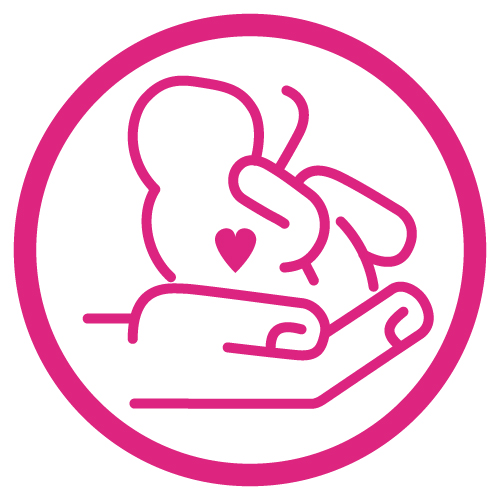 Neonatology Online Course(s) & Continuing Education
Neonatology Online Course(s) & Continuing Education
Access the latest clinical skills and research for Neonatology for Maternal Health professional training. These Neonatology online courses provide practice-changing skills and valuable perspectives from leading global experts. This Neonatology education has been accredited for a variety of CEUs / CERPs and can be accessed on-demand, at your own pace.


Dr. Caraciolo Fernandes is an academic neonatologist whose clinical experience and training spans three different countries/continents and over three decades. He received his medical degree from Grant Medical College in India, and did Fellowships at King Edward Memorial Hospital, Australia and Baylor College of Medicine, USA before joining the faculty at the Texas Children's Hospital and Baylor in 1998. He recently acquired a Master of Business Administration from the University of Tennessee in 2018.
A clinician-educator and practicing neonatologist, he is actively involved in teaching Baylor College of Medicine medical students, pediatric residents and neonatology fellows. At Texas Children's Hospital, he has served as the Medical Director for Neonatal Transport since 2008, and is involved in multi-disciplinary clinical research, and quality improvement initiatives. He also is a QI Coach at Baylor College of Medicine Institute for Continuing Professional Development in Quality Improvement and Patient Safety.
Nationally, he is a past member of Executive Committee of the Section of Transport Medicine of the American Academy of Pediatrics, and an editor of the inaugural edition of the Field Guide for Air and Ground Transport of Neonatal and Pediatric Patients that was introduced at the AAP National conference in Orlando, FL in November 2018. He is a senior editor of "Guidelines for the Acute Care of the Neonate," currently in its 28th annual revision, a handbook that has served as a resource for health-caregivers at Baylor-affiliated institutions for over two decades, and, currently via free online download, for practitioners in over 50 countries.
Premature and sick babies are often born in locations ill-equipped to care for them. They are then transported to higher levels of care for sophisticated diagnostic tests and specialized care. However, while such transport is necessary, it is not without risk. Since critically-ill infants can deteriorate clinically during transport, ideally only specialized teams should transport sick infants. Unfortunately, this is not pragmatically possible nor is the standard of care. With regionalization of care, more infants are transferred to tertiary-care centers for specialized care than ever before and not all centers have specialized transport teams to transport infants. Despite best efforts, not all transports will go well, and often processes and outcomes may leave much to be desired. Hence, it is vital for hospital administrators and clinicians to learn quality improvement (QI) methodology, monitor relevant metrics, and implement QI initiatives to order to improve outcomes. Fortunately, developing a QI mindset and applying it to neonatal transport can easily be done with practice. Learning how to prioritize QI initiatives, assemble QI teams, lead healthcare change, sustain improvements, and develop a culture that strives to improve are all desirable and can yield significant tangible benefits for clinicians and their patients.


Keira Sorrells is the mother of triplets born at 25 weeks, 5 days gestation. After starting a non-profit, the Zoe Rose Memorial Foundation in 2008, to offer support services to NICU and bereaved families, she became aware that a collective voice for parents of NICU babies was missing in the Maternal and Infant Health community. In response, she helped launch the Preemie Parent Alliance (PPA) in 2012, where she now serves as President. PPA is a national network of 35 NICU parent support organizations that collaborate to represent the needs and best interests of NICU families in a variety of ways. Ms. Sorrells believes a trusting parent-provider relationship is crucial to build a foundation of empowerment and support on which NICU families thrive well beyond discharge, no matter what the ultimate outcome may be.
It is human nature to "relate" to and take care of those we view as being most like us. However, choosing your patients is not an option. Studies have shown that parents who have an infant in the NICUf are at risk for developing PPD, PTSD, and other mental health concerns that may negatively impact their ability to bond with their babies. Further research tells us that a parent's ability to bond with their infant is critical to that child's overall development. Healthcare providers in the NICU must be equipped to uncover the details of a parent's experience that may not be apparent on first glance. A parent who has fallen victim to PTSD may exhibit many symptoms that can in their behavior as a response to their trauma that can then create many opportunities for misunderstanding, miscommunication, and ultimately an environment of discord. By sharing her experience of having micropreemie triplets in the NICU, Ms. Sorrells will lead the audience on an exploration of the psychosocial needs of NICU parents to uncover common barriers of communication and how to overcome those barriers to improve outcomes.

View Details / Enroll
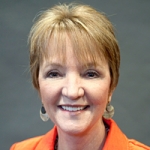
Interdisciplinary Neuroprotective Practice Standards and Perinatal Mental Health in the NICU

Dr. Craig lives in metro Atlanta, GA., is an Associate Professor and the Department Chair of Brenau University’s School of Occupational Therapy program. She has been practicing for 35 years, received her degree in OT at the Medical College of Georgia, her MBA from the University of Alaska-Fairbanks, and her PhD in Infant and Childhood Disorders with emphasis in Mental Health and Developmental Disabilities from Fielding Graduate University. Jenene currently serves as the Director of Education for National Association of Neonatal Therapists (NANT). She is also on the executive committee of the Board of Directors for the National Perinatal Association. In addition to consulting with several local NICUs, Jenene works PRN at a regional Level III NICU. She serves as a national speaker for the care of premature infants and families embattled in the stressful environment of the NICU. Jenene’s personal passion is to support multidisciplinary work in the NICU with a focus on parent-infant outcomes.
Hospitalization of a baby in a Neonatal Intensive Care Unit (NICU) has been described as a traumatic experience for both parents and baby leading to higher rates of postpartum depression and posttraumatic stress disorder in parents and to adverse developmental, cognitive and behavioral outcomes in their infants. The focus of care in the NICU has been broadening and evolving to emphasize the importance of supporting the family-infant relationship, since ultimately, the well-being of the family affects the well-being of the baby. Research documents that NICU parents both desire and benefit from psychosocial support from NICU staff, yet many staff, including neonatologists and neonatal nurses, do not feel they have adequate skills to support these needs. NICU staff need knowledge and tools beyond what typical healthcare education provides. Interdisciplinary recommendations for work toward best practice around psychosocial support of infants/parents and staff are presented.

It Is My Baby Too: Improving Fathers’ Experiences of Neonatal Care

Prof. (Dr.) Minesh Khashu M.B.B.S, MD, FRCPCH, FRSA, Q Fellow ( Health Foundation & NHS Improvement), Fellow England Centre for Practice Development Consultant Neonatologist, Poole Hospital NHS Foundation Trust & Prof. of Perinatal Health, Bournemouth University. Clinical Director, Maternity & Neonatal Care, Regional Strategic Clinical Network, NHS England, Wessex Dr. Khashu has received national and international recognition for his work especially in Quality Improvement, Necrotizing Enterocolitis and improving fathers experiences of neonatal care. Dr. Khashu is a clinical leader reimagining healthcare with a focus on system wide transformation, continuous Quality Improvement and Patient Centred Care. He has experience of clinical management and leadership at hospital, regional and national level including strategic change, system redesign, large scale quality improvement and development of national guidance and multi stakeholder collaboration. He has developed the DadPad Neonatal, a resource to support dads whose babies have been admitted to neonatal units. This has been very well received by parents, families, healthcare professionals and charities and nominated for multiple national awards. https://thedadpad.co.uk/neonatal/ He has also set up SIGNEC (special interest group for NEC) in the U.K. and developed a website for parents/families and health professiaonals which has been much appreciated. https://signec.org/ He convenes International Conferences on NEC in London regularly.
The presentation will cover current evidence of suboptimal practice in terms of fathers expereinces within maternity and neonatal services, our specific recommendations to improve practice and my development of DadPad Neonatal as a specific resource to improve experiences of fathers.
We have reviewed the literature on engaging fathers in neonatal units, with the aim of making recommendations for improving experience of fathers as well as health outcomes in neonatal practice. Fathers typically describe the opportunity to bond with their babies in glowing terms of gratitude, happiness and love. These experiences are underpinned by hormonal and neurobiological changes. We find that engagement with fathers remains sub-optimal. Fathers, also, are subject to different social expectations from mothers, which shapes how they respond to the situation and how neonatal staff treats them.
We have put forth 3 core principles and 12 practical recommendations for neonatal teams to focus on.

View Details / Enroll
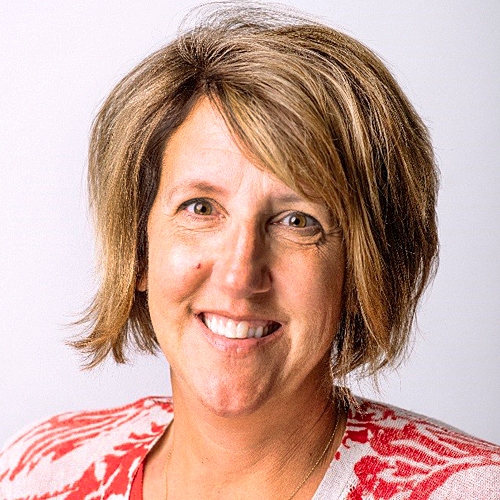
Legalization of Marijuana: Unintended Consequences on Our Most Vulnerable Patients

Dr. Wallman is an Assistant Professor at the Loretto Heights School of Nursing and the Coordinator of the Neonatal Nurse Practitioner Program. She has over 30 years’ experience as an NNP with clinical experience ranging from low to high risk neonates including air transport. She has had a particular interest in perinatal substance use disorders and the impact on the neonate and family. She has been the co-chair of the Perinatal Substance Abuse Advisory Panel for UCHealth North and on the Colorado Substance Exposed Newborn Steering Committee since 2008. In 2015 she was the recipient of the Colorado Nightingale Award and in in 2006 the Distinguished Service in Neonatal Nursing Award from the National Association of Neonatal Nurses. She also served as the only nurse in the nation on the American Academy of Pediatrics Committee on Fetus and Newborn where best practice standards for the care of neonates are developed and she currently serves on the Editorial Board of NeoReviews for the American Academy of Pediatrics.
States with legalized marijuana have faced increased use of marijuana by women during the perinatal period and complexities in decision making regarding management of infants exposed to marijuana through pregnancy and breastfeeding. Staff and family often report inconsistent messaging and practice management patterns among staff and providers in response to these patients. Results of a comprehensive literature search will be utilized to discuss the development and implementation of best practice strategies to address the unintended consequences of increased use of THC during pregnancy and breastfeeding correlating with the legalization of THC. This presentation will provide a review of current scientific evidence available to support the development of guidelines for consistent messaging and management of these newborns and their families during pregnancy and while breastfeeding.

View Details / Enroll
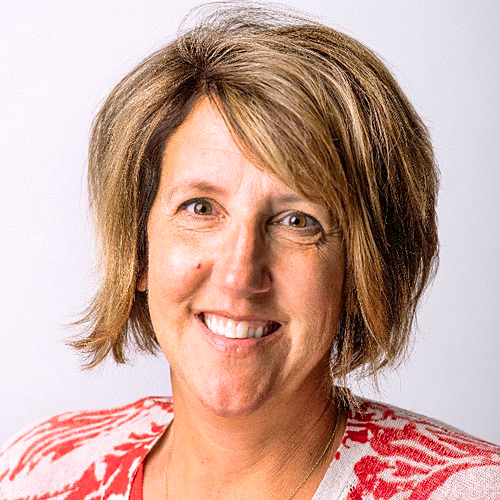
View Details / Enroll


I am currently a Postdoctoral Scholar co-supervised by Dr. Melanie Noel (Psychologist and Assistant Professor in Psychology, University of Calgary) and Dr. Nivez Rasic (Anesthesiologist and Clinical Lead of the Vi Riddell Children’s Pain & Rehabilitation Program, Alberta Children’s Hospital) in the Department of Anesthesiology, Perioperative and Pain Medicine at the University of Calgary, Alberta Canada. In 2015, I completed a PhD in Neuroscience at the University of British Columbia under the supervision of Dr. Ruth Grunau (Psychologist and Professor in Pediatrics, University of British Columbia, Vancouver, British Columbia) and Dr. Steven Miller (Head of Neurology at the Hospital for Sick Children, and Professor in Pediatrics, University of Toronto, Toronto, Ontario). I have been studying pediatric pain in both healthy and clinical populations for over a decade. I have experience and expertise in both acute and chronic pain, and the transitions in-between, from infancy through to early adulthood.
As part of their lifesaving care, infants born very preterm (8 to 16 weeks too early) undergo repeated invasive procedures for what can be weeks to months on end. There is accumulating evidence demonstrating the negative long-term effects of repeated neonatal pain on the developing brain and neurodevelopmental outcomes of children born very preterm. The presentation will outline why infants born ≤32 weeks gestational age, are particularly vulnerable to repeated exposure to invasive procedures. I will highlight the latest literature exploring the long-term effects of neonatal pain on the brain and neurodevelopmental outcomes of both children born very preterm and animal models of prematurity. Furthermore, I will discuss evidence-based pain prevention and intervention strategies applied during neonatal intensive care. It is imperative that we continue to find ways to reduce the negative long-term effects of pain within this vulnerable population of infants born very-preterm.
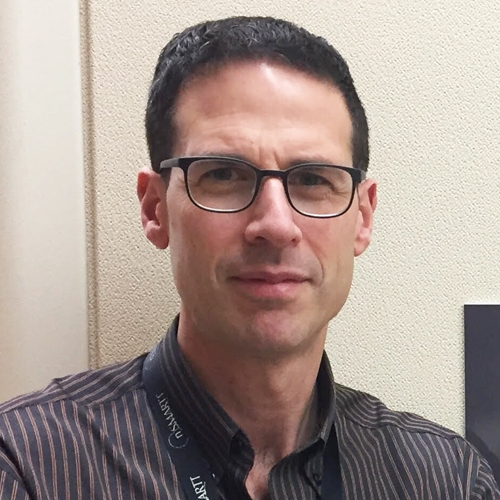

Dr. Narvey began his training in Pediatrics at the University of Manitoba in Winnipeg where he completed a year of further training in Neonatology. This was followed by two years of Neonatal fellowship at the University of Alberta in Edmonton. Afterwards he began his career as a Neonatologist in the same city and over the 6 years he spent there, his career included both clinical and administrative duties including 4 years as the Fellowship Program Director and two years as the Medical Director for a level II unit. In late 2010 he accepted a position in Winnipeg to become the Section Head of Neonatology and continues to hold this post. In 2016 he took on the additional role of Medical Director of the Child Health Transport Team. In 2015 he became a member of the Canadian Pediatric Society’s Fetus and Newborn Committee and in 2019 took over as Chair of the same. His interests predominantly lie in the use of non-invasive technology to minimize painful procedures during an infants stay in the NICU. He is active on social media and has a passion for fundraising and is an active board member of the Children’s Hospital Foundation of Manitoba.
Topic: Human Milk Diet and Fortification: Controversies and Evidence - [View Abstract]
Topic: Many Different Shades of Yellow - [View Abstract]
Topic: Respiratory Problems in the Newborn: Where Are We in 2022? - [View Abstract]
Topic: Sweet and Sour: Hypoglycemia in the Newborn - [View Abstract]
Jaundice is one of the most common problems facing health care practioners in NICU. As we approach the 50th year of phototherapy this talk will explore some of the outstanding questions concerning diagnosis and treatment. Particular attention to the use of transcutaneous measurement and controversies pertaining to thresholds for treatment below 35 weeks gestational age will be discussed. Lastly we will explore how our current approach to jaundice may influence the risk of developing severe hyperbilirubinemia and chronic bilirubin encephalopathy (kernicterus) in a Canadian population.

View Details / Enroll
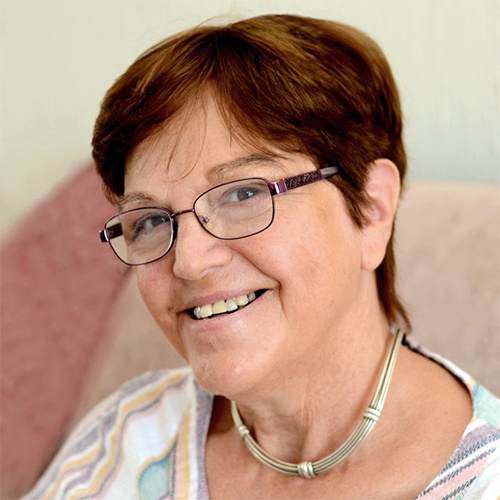

In her employed life Wendy was a community pharmacist and also worked in doctor surgeries supporting cost effective, evidence-based prescribing.
Wendy left paid work to concentrate on writing Breastfeeding and Medication (Routledge 2nd edition 2018), developing information and training material on drugs in breastmilk as well as setting up her own website www.breastfeeding-and-medication. She has also published Breastfeeding for Dads and Grandmas (Praeclarus Press) and Why Mothers Medication Matters (Pinter and Martin). She is also co editor of a book to be published January 2020 called A guide to breastfeeding for medical professionals (Routledge).
Wendy is known for her work on providing a service on the compatibility of drugs in breastmilk and has been a breastfeeding peer supporter for 30 years. She is passionate that breastfeeding should be valued by all and that medication should not be a barrier. She has 3 daughters and 5 grandchildren. All her family seem as passionate about breastfeeding as she is and currently all 3 of her daughters are breastfeeding.
She was awarded a Points of Light award by the Prime Minister in 2018 and nominated for an MBE in the New Year's Honours List 2018 for services to mothers and babies. She received her award at Windsor Castle in May 2019 from Her Majesty the Queen.
Topic: Medication and Breastmilk in the NICU - [View Abstract]
Topic: Pharmacokinetics and Clinical Implications of Drugs in Human Milk: The Substance-Exposed Infant - [View Abstract]
For optimal health, a baby born pre-term should be enabled to breastfeed as soon as possible or to receive expressed breastmilk from their birth mother. Where this isn't an option, donor breastmilk can be used. Breastfeeding a pre term or otherwise vulnerable baby in NICU is challenging, and where medications are involved there may be additional barriers. The baby may need medication to treat its own medical needs, the birth mother may also need medication and it is important to consider the risks of these passing through breastmilk. If the baby is to receive donor breastmilk then it is essential that the donor is not taking anything that might impact on the health of the recipient baby. In this presentation some of the barriers will be discussed along with discussion on how these may be overcome using the limited evidence base available.
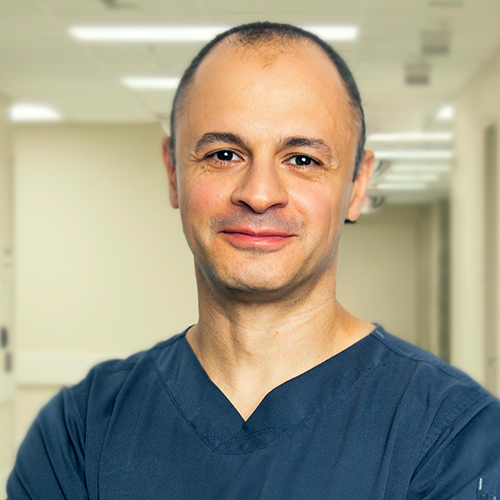
Mother's Own Milk Versus Donor Human Milk in the NICU: Practical Recommendations for Individualized Care

Prof EL-Khuffash is a Consultant Neonatologist and Paediatrician. He is a qualified International Board Certified Lactation Consultant. His two primary clinical and research areas of expertise are heart function in neonates and the promotion of breast feeding, and breast feeding support, to new mothers. He also has extensive expertise in general feeding issues encountered by babies over the first few months.
Prof EL-Khuffash sees families for prenatal breast feeding and fetal anomaly consultations and postnatal infant assessment, 2 and 6 week checks, and breastfeeding/general support including early irritability and reflux in his consultation rooms in the Rotunda Private Clinic.
Prof EL-Khuffash has considerable knowledge of breast feeding medicine and experience in providing antenatal and postnatal breast feeding advice and support to new mothers. This includes identifying and addressing challenges to breastfeeding in both the mother and the baby. He also specialises in general feeding difficulties and early feeding issues encountered by babies.
Prof EL-Khuffash graduated from Trinity College, Dublin in 2002 and enrolled in the Royal College of Physicians of Ireland paediatric specialist training scheme in 2005. He completed a Doctor of Medicine (MD) degree in University College, Dublin in 2008 and his neonatal specialty training in Toronto, Canada (2009-2011). Following this, he was appointed as a consultant Neonatologist and Assistant Professor of Paediatrics at the University of Toronto in January of 2011. He obtained a diploma in clinical epidemiology during his time in Toronto. He is the recipient of several national and international research awards, with international peer reviewed publications and keynote presentations and the lead for cardiovascular research, supervising several post graduate PhD candidates.
Topic: Mother's Own Milk Versus Donor Human Milk in the NICU: Practical Recommendations for Individualized Care - [View Abstract]
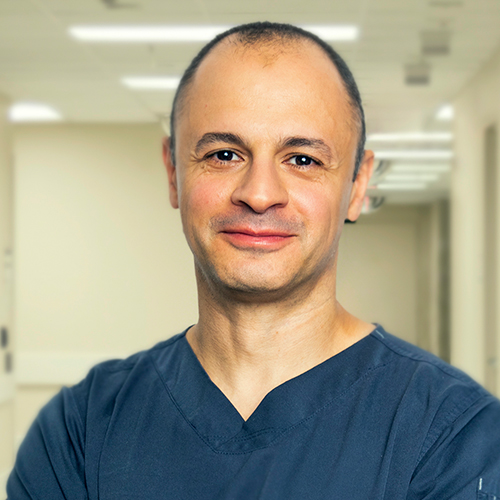
View Details / Enroll

Navigating Pathways to Breastfeeding Success in the Late Preterm Infant

Dr. Nastassia Harris is a licensed registered nurse with over 15 years’ experience in perinatal nursing and became an International Board Certified Lactation Consultant in 2009.
Nastassia serves as an assistant professor in the school of nursing at Montclair State University. Over her career Nastassia developed a passion for eliminating disparities in black infant and maternal health. In 2018, she went on to found a nonprofit, the Perinatal Health Equity Foundation where she serves as the executive director. Through the nonprofit, Nastassia established Sistahs Who Breastfeed, a breastfeeding support group for black women which operates in several NJ cities.
She is active in several committees and organizations including the Association of Women's Health Obstetrics and Neonatal Nursing and the Black Mamas Matter Alliance. Nastassia's research and clinical interests include implicit bias/racism in healthcare, breastfeeding in the black community, obstetrical violence, high risk OB, and reproductive justice.
Topic: When It's Time to Let Go... Stories of Weaning - [View Abstract]
Breastfeeding the late preterm newborn (34 0/7 to 36 6/7 weeks) presents unique challenges that differ from that of a health full term baby. By nature of their immaturity, late preterm infants are at higher risk for developing jaundice, hypoglycemia, falling sleeping during feedings, and being difficulty to wake. Unfortunately, this also puts them at a greater risk for formula supplementation, despite a family’s desire for exclusive breastfeeding. This presentation will help to illustrate the challenges in breastfeeding the late preterm infant, and techniques for preserving exclusivity in the hospital and post discharge.




